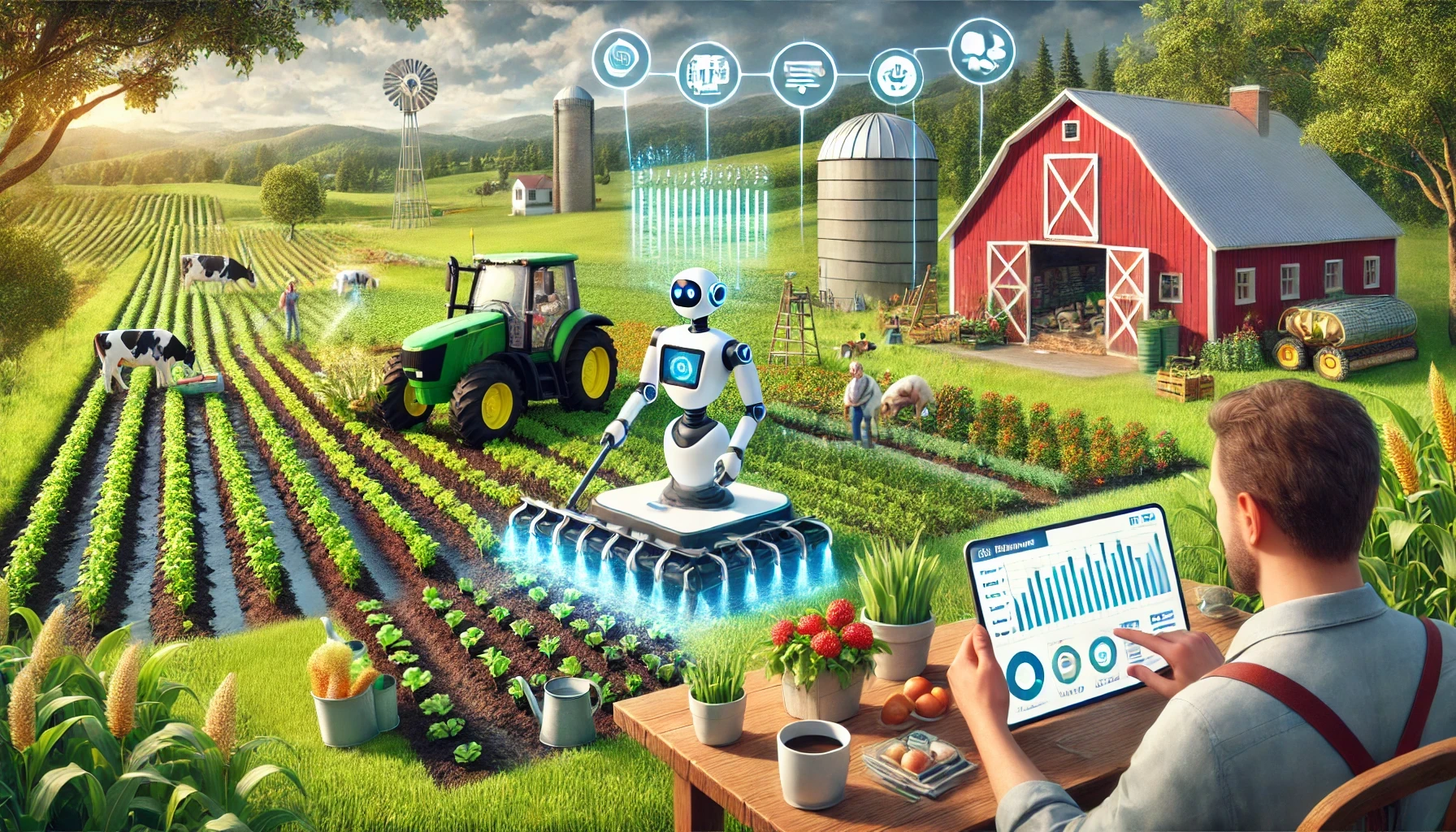Revolutionizing Agriculture: How AI is Transforming Farming 🌾🤖

The agricultural industry has always been at the forefront of innovation, from the invention of the plow to the development of modern irrigation systems. Today, a new revolution is underway—artificial intelligence (AI) is transforming farming practices and bringing unprecedented efficiency, sustainability, and productivity to the fields. Let’s dive into how AI is reshaping agriculture and the farming industry!
1. Precision Farming 🌱🎯
Precision farming involves using AI to gather and analyze data from various sources such as satellite imagery, weather forecasts, and soil sensors. This data helps farmers make informed decisions about planting, watering, and harvesting crops. AI algorithms can predict the optimal time to plant and harvest, ensuring maximum yield and minimizing waste.
2. Smart Irrigation Systems 💧🚀
Water is a precious resource, and efficient irrigation is crucial for sustainable farming. AI-powered irrigation systems use sensors to monitor soil moisture levels and weather conditions, adjusting water usage accordingly. This not only conserves water but also ensures crops receive the right amount of hydration, leading to healthier and more productive plants.
3. Pest and Disease Detection 🐜🔍
Pests and diseases can devastate crops, leading to significant losses for farmers. AI-driven tools, such as drones equipped with computer vision, can scan fields and identify early signs of infestations or disease. By detecting issues early, farmers can take targeted action to protect their crops, reducing the need for widespread pesticide use and minimizing crop damage.
4. Autonomous Machinery 🚜🤖
Autonomous tractors and harvesters are becoming a reality on farms around the world. These AI-powered machines can perform tasks such as planting, weeding, and harvesting with minimal human intervention. They are equipped with GPS and computer vision systems to navigate fields accurately, increasing efficiency and reducing labor costs.
5. Supply Chain Optimization 📈🚛
AI is also transforming the agricultural supply chain. Machine learning algorithms analyze market trends, weather patterns, and crop yields to optimize the distribution of produce. This ensures that fresh produce reaches consumers faster and reduces food waste. Additionally, blockchain technology, combined with AI, enhances traceability and transparency, helping farmers and consumers alike.
6. Livestock Management 🐄📊
AI is not limited to crop farming—it is also revolutionizing livestock management. AI-powered systems monitor the health and behavior of animals, detecting signs of illness or distress early. This allows farmers to provide timely medical care, improving animal welfare and productivity. Automated feeding systems ensure livestock receive the right nutrition, enhancing growth and milk production.
7. Climate Change Adaptation 🌍♻️
As climate change poses new challenges for agriculture, AI is helping farmers adapt. Advanced models predict weather patterns and assess the impact of climate change on crop yields. This information enables farmers to select resilient crop varieties and implement adaptive strategies to ensure food security in the face of changing climatic conditions.
Conclusion
The integration of AI into agriculture is not just a technological advancement—it’s a necessity for the future of farming. By enhancing precision, efficiency, and sustainability, AI is helping farmers feed the growing global population while conserving resources and protecting the environment. As we continue to innovate and harness the power of AI, the future of agriculture looks brighter than ever. 🌟🚜🌿
